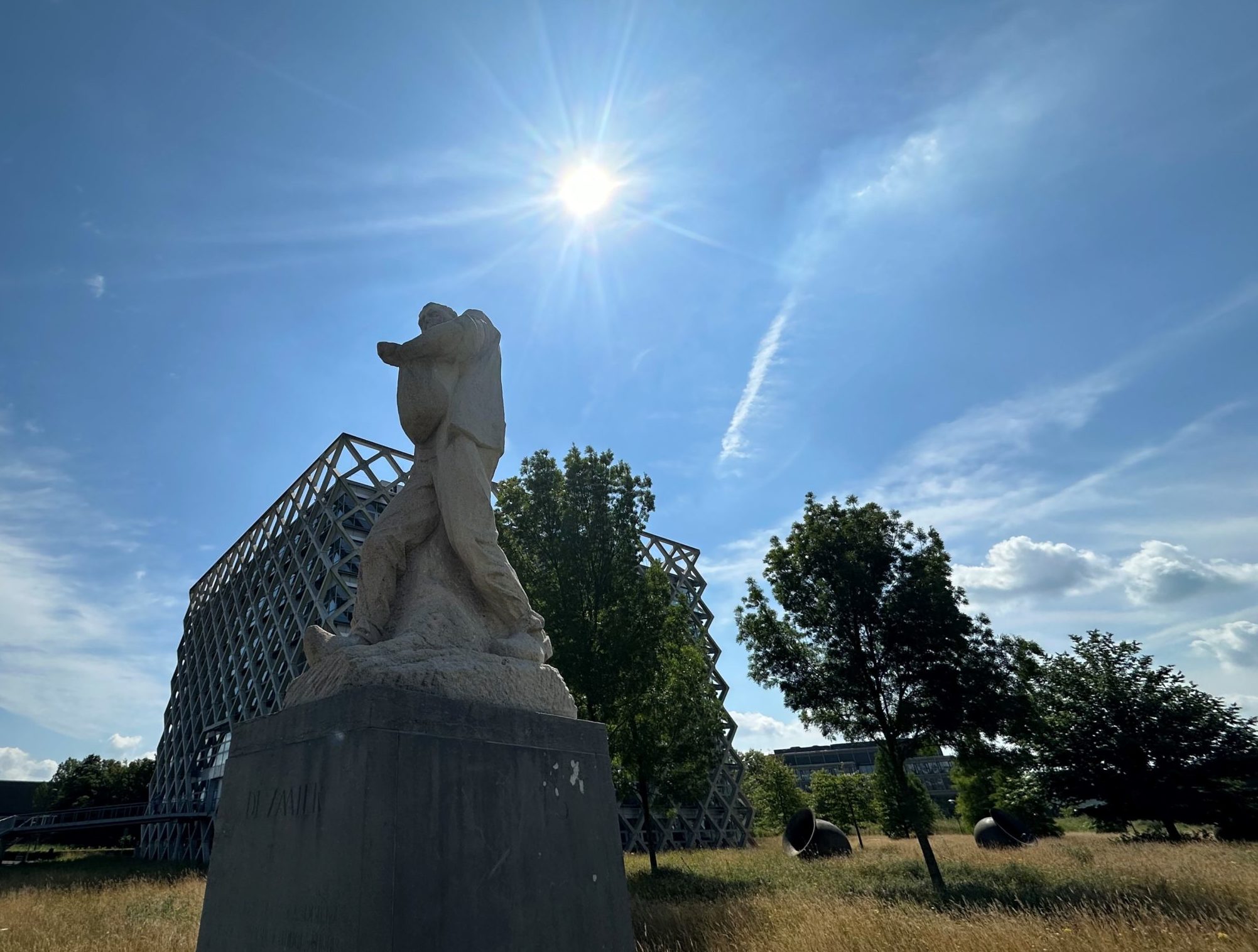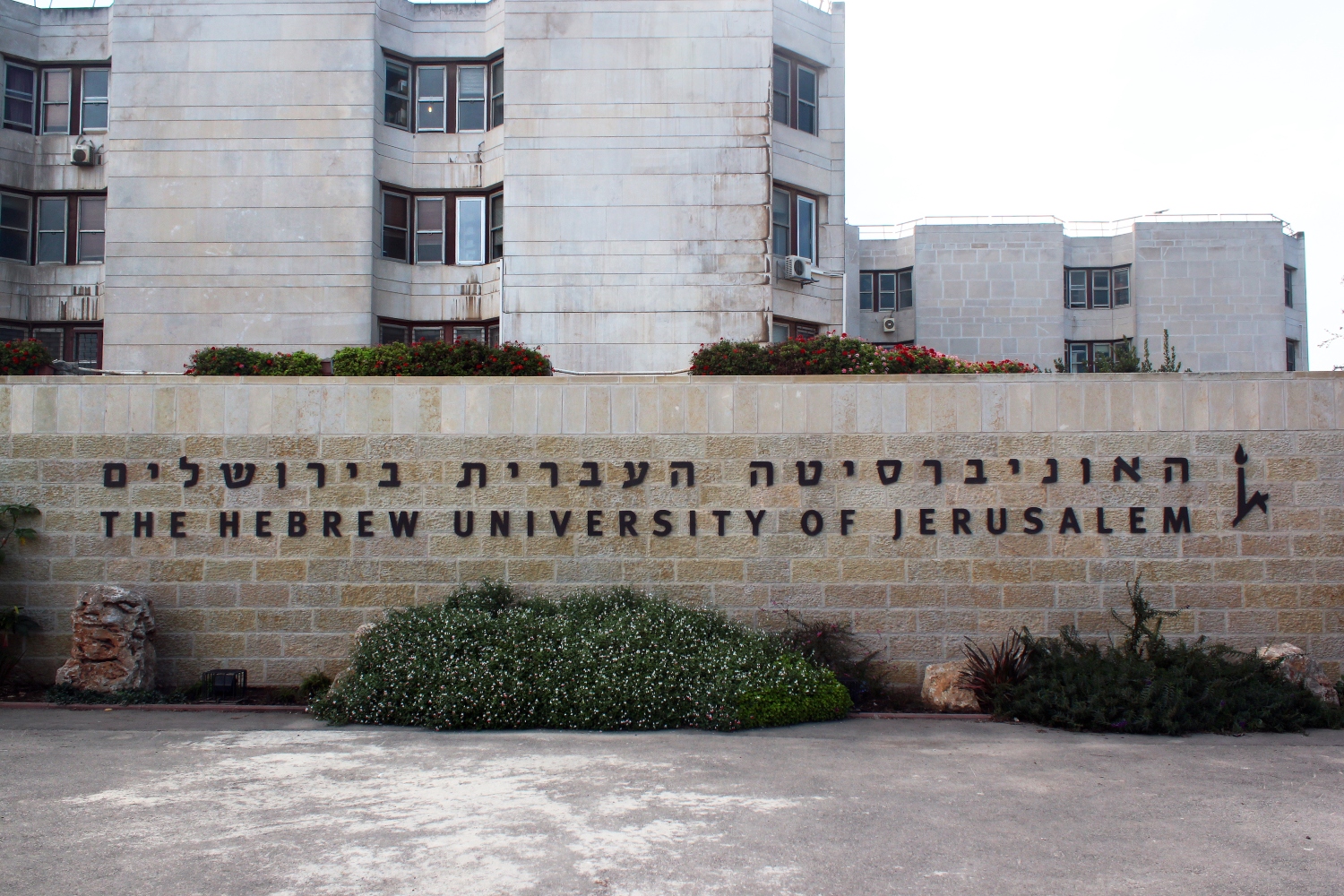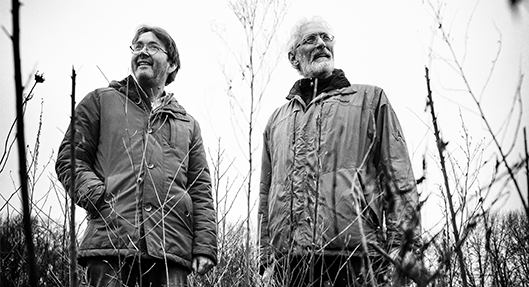Is it still acceptable to collaborate with a fossil fuel player like Shell? Yes, says WUR, but only on certain conditions. An advisory committee appointed by the Executive Board presented those conditions to the board in mid-December. Resource gauges how the recommendations are being received.
A debate arose last year in Wageningen, as it has elsewhere, about the links between the university and the fossil fuel industry. So in July, the Executive Board decided to appoint an advisory group to draw up criteria for entering into new collaborations, in the first instance with fossil-fuel companies.
Three steps
The recommendations were published in December, and consisted of a decision framework with three steps. The first is an overall assessment of whether the project aligns with the WUR mission. The second step is to assess the collaboration partner: is it fossil-fuel-based, how committed is it to the Paris Agreement, are we sure it doesn’t actively undermine climate policies? And lastly, WUR must be responsible for the research objectives and the partner should not contribute more than 30 per cent of the funding. The third step is a reflective report by an evaluation committee, to be appointed soon.
‘This decision framework is not a silver bullet,’ says Carolien Kroeze, chair of the advisory group and from 10 March rector magnificus at WUR. ‘There will always be wicked dilemmas.’ But Kroeze does think the formulation of the recommendations over recent months has raised awareness. ‘Colleagues are asking themselves: Does this collaboration still fit the bill?’ The only student in the nine-strong advisory group, Kristina Smieskova, saw herself as the most critical committee member. ‘It was a challenge to include all WUR viewpoints and still be ambitious,’ says Smieskova.
Clarifying dilemmas
Geert Aarts, a marine mammal researcher who is also in the group: ‘To me, the chief benefit of the decision framework is that we’ve clarified the dilemmas on paper. Everyone who reads it will become aware of them. So in future, when a proposal comes in for a project with a fossil-fuel party, there will be a discussion. And the arguments will be written down.’ Likewise, for Martijn Duineveld of the critical Scientists4Future group, the main advantage is that collaboration with such partners will no longer be a matter of course. Duineveld: ‘Now you’ve got to take a position on things you used to overlook. You become aware of the negative side-effects of a project that might seem very positive in itself.’
Political
The advisory group’s recommendations have had a mixed reception among WUR scientists. Karen de Greef, a researcher in Breeding and Genomics at Wageningen Livestock Research, is glad that the decision framework leaves some room for fossil-fuel collaboration. ‘We are working for society as a whole, and I think we must continue to do so. We mustn’t make our work too political. It’s okay for us to tackle controversial issues, as long as we don’t let ourselves be used by any lobbies.’
I predict that we’ll largely go on doing what we were already doing, but now with a bigger burden of administration
Janjo de Haan, a researcher in Soil, Water and Fertilization at Wageningen Plant Research
Janjo de Haan, a researcher in Soil, Water and Fertilization at Wageningen Plant Research, has done research with Shell in the past. He is bothered about the procedural approach proposed by the group: ‘I predict that we’ll largely go on doing what we were already doing, but now with a bigger burden of administration. What we really need is a change of culture in the organization. Then you don’t need this kind of administrative procedure, and the decision can be taken at lower echelons in the organization.’
Yuca Waarts, an economist at Wageningen Economic Research, has doubts about the scope of the framework. ‘I would reverse the starting point. Rather than reasoning from the project as your starting point, why not ask yourself: how can I have the biggest impact with my available time as a researcher? If I take on this project, what other possibilities will I pass up? That’s what management should aim at.’ Waarts also sees a problem with the conflicting interests of the research directors who should make the decision, according to the recommendations, as to whether a project goes ahead. ‘Make the recommendations of the planned Evaluation Committee binding. Or get a research director from another group to look at the reflective assessment.’
Close the door
End Fossil Occupy, an activist group that occupied part of the Forum in May 2023, will continue campaigning in 2024. ‘Overall, we see this as a tentative step in the right direction, but it will take a lot more than this to turn WUR into the critical and independent institute we need in the battle against climate change,’ says Noor* on the group’s behalf. ‘We would also prefer to see a bigger role for a democratic organ such as the WUR Council.’
It’s like a toilet: even if the door is only ajar, it still stinks
Martijn Duineveld, Associate professor and member of the critical Scientists4Future group
Scientists4Future is critical of the recommendations too, and wrote a letter with causes for concern (see resource-online). Associate professor Martijn Duineveld was a signatory to the letter. ‘Numerous doors are left open in the current recommendation. Even with only a minority investment, they are still at the table at WUR. By collaborating with the fossil industry, we legitimize them. That makes us jointly responsible for what they do. It’s like a toilet: even if the door is only ajar, it still stinks. Let’s close the door completely.’
The research directors do not wish to respond to the advisory group’s recommendations in Resource yet, and will wait for the Executive Board to reach a decision on them. That will be soon, according to WUR spokesperson Jan-Willem Bol.

 Many see awareness-raising as a positive effect of the recommendations. ‘In future, when a proposal comes in for a project with a fossil-fuel party, there will be a discussion.’
Illustration Valerie Geelen
Many see awareness-raising as a positive effect of the recommendations. ‘In future, when a proposal comes in for a project with a fossil-fuel party, there will be a discussion.’
Illustration Valerie Geelen


